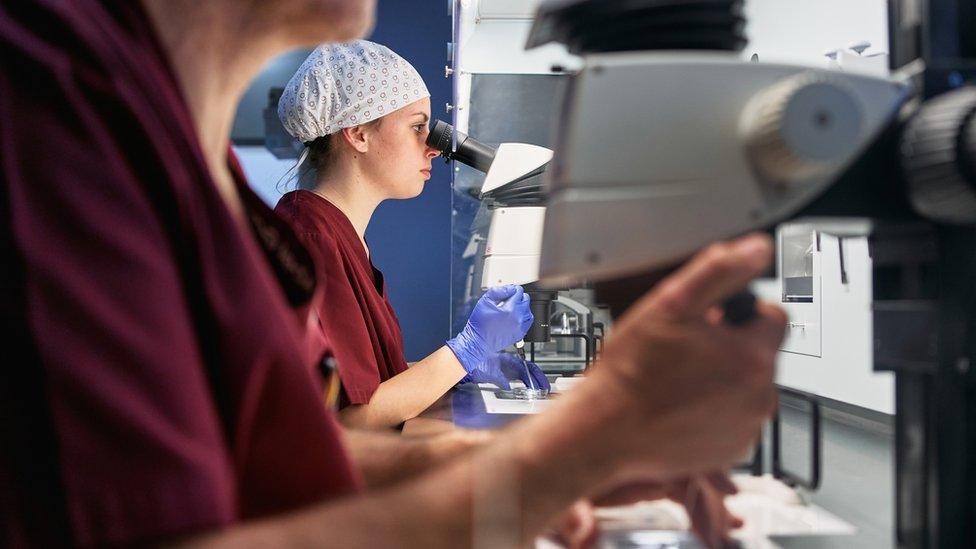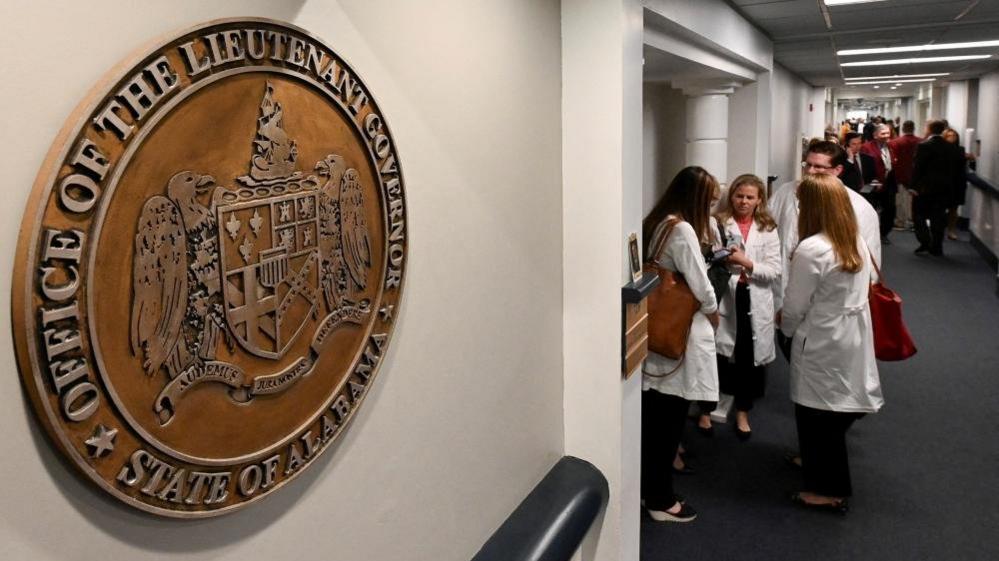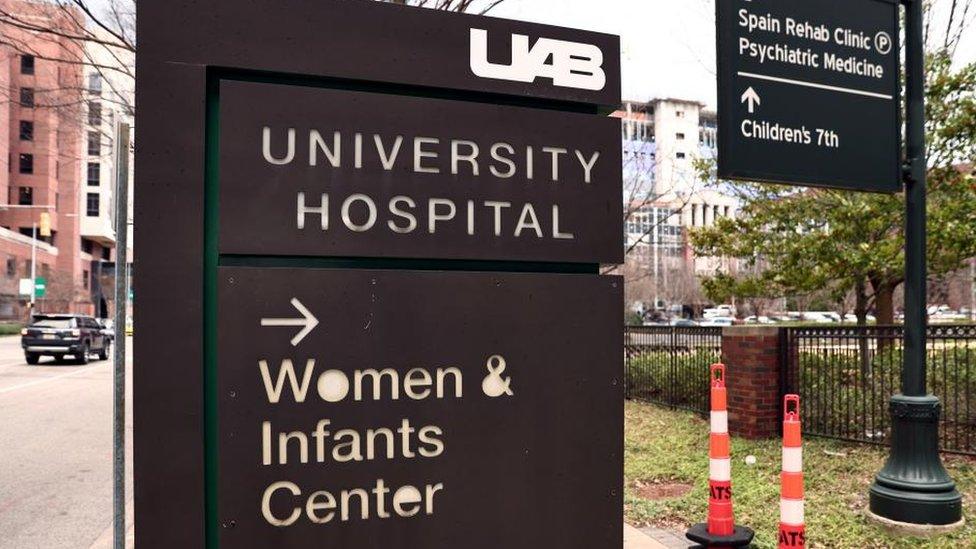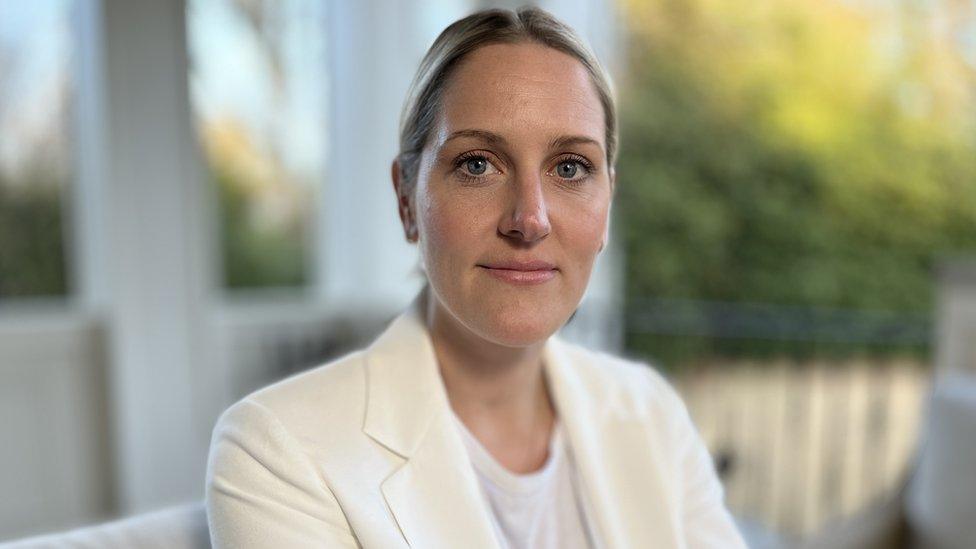Alabama enacts fast-tracked law to protect IVF services
- Published

Proponents of the law say it will allow families to re-start IVF treatments that were paused after the Alabama Supreme Court's ruling.
Alabama lawmakers have passed a bill to protect in-vitro fertilisation (IVF) clinics and doctors from lawsuits and criminal prosecution.
The state's supreme court last month ruled that frozen embryos had the same rights as children, and people could be held liable for destroying them.
At least three IVF clinics paused treatments after the ruling, causing political fallout for Republicans.
The new law will allow the clinics to resume services.
The Alabama bill had overwhelming bipartisan support on Wednesday. It passed by a vote of 81-12 in the state's House and 29-1 in the Senate.
Governor Kay Ivey, a Republican, quickly signed it into law.
The measures are designed to shield IVF providers from legal action and prosecution for "damage or death of an embryo" during services.
Proponents of the bill said they hoped this would allow IVF providers to re-start services.
"The problem we are trying to solve right now is to get those families back on track to be moving forward as they try to have children," state legislator Terri Collins told CBS News, the BBC's US partner.
While the measure offers limited legal immunity to medical providers, it still allows - in some cases - for lawsuits to be filed against manufacturers of IVF equipment if they damage or destroy an embryo during the treatment process.
The bill also did not weigh in on whether embryos can be legally classified as children.
Alabama Democratic House minority leader Anthony Daniels told AL.com, external earlier on Wednesday that the measure did not sufficiently answer the question of whether embryos outside the womb are children.
"Until that issue is addressed, it's just putting a Band-Aid over something that requires stitches and surgery," Mr Daniels said.
The 16 February decision from the Supreme Court of Alabama stemmed from wrongful death lawsuits filed on behalf of three couples whose frozen embryos were accidentally destroyed at a clinic in 2020.
The ruling sparked an immediate backlash, both in the southern state and nationally.
With eight months to go until the US presidential election, President Joe Biden's campaign has seized on the controversy.
A Pew survey released last year found that 42% of Americans have either used IVF treatments or know someone who did.
That percentage rises to 45% among middle-income Americans and 59% for those with high-incomes.
Related topics
- Published29 February 2024

- Published27 February 2024

- Published25 February 2024
